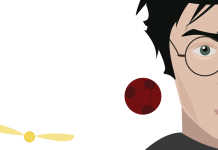On the tail weekend of a quiet Reading Week, a miniature circus danced into the SLC Great Hall: say hello to the 23rd UW Juggling Festival. It welcomed beginners, hobbyists, and professional jugglers from all across Canada and featured free workshops as well as a Saturday evening performance at the Arts Theatre in the Modern Languages building. </p>
Along with casual and lively performances throughout the weekend, free workshops were held from 11 a.m. to 6 p.m. during the festival. Workshops covered topics such as juggling with clubs, unicycle riding, poi flower creation, ring juggling, partner acrobatics, and a beginners workshop.
Many have attended the UW Juggling Festival since its beginnings. “This is my 16th year in a row coming to this festival,” said Greg Philips, a software engineering professor at Royal Military College.
Another returning guest at the festival was Dan Higgins of the Higgins Brothers — a renowned manufacturer of circus supplies and a major supplier for Cirque du Soleil. The Higgins Brothers have been in operation for 21 years, and according to Higgins have been selling supplies at the UW Festival for just as long.
Returning UW Juggling Club members included Kristine and Allan Rogalsky. “We come out for the festival every year,” said Kristine. “[Allan and I] met at Juggling Club [so] Juggling Club is a big deal for us. And the festival is a lot of fun.” Allan continues to be heavily involved with UW Juggling Club after graduating, also helping with annual festival preparations. This year, they brought their baby daughter to the festival.
Juggling is a fairly quick skill to get started with, according to Tim Dresser, one of the organizers of the event and long-time member of the UW Juggling Club; learning the “basic three-ball cascade takes anywhere from half an hour to a week,” said Dresser, “But I’d say an average adult [will take] only an hour or so.”
Professional performers Bob Kates and John Park, who were also present, reminded more-experienced jugglers that one can never be too experienced to learn new things: “Just because I’m a professional doesn’t mean I’m the best juggler. Some of the hobby jugglers are better than me,” Park said, hoping to learn some new techniques over the weekend.
Across the vast assortment of people, one common aspect they shared was their love for juggling and all it encompasses.
Ally Kortex, part of the University of Guelph Juggling Club, said, “My favorite part in juggling is doing it with other people who have the same interests.”
Adding to this, Dresser said that juggling “encourages me to move around a lot and think in different ways. [It] is interesting in that it is both an artistic endeavor and a sports endeavor.”
For professional jugglers such as Yoshi Chladny, the best part about his job is “travelling and meeting people, and when you go somewhere, you see a different side … You often get to see the best part because you are there for a festival or an event, so there is always life and something happening.”
For anyone who would like a chance to step into Chladny’s shoes and travel while pursuing their juggling interests, Dresser mentioned that the next big juggling festival will be happening from July 20–26 in Quebec City. This week-long festival is organized by the International Jugglers’ Association, who also host artistically-oriented (choreographed) juggling competitions throughout the year. Past festivals have been held in Indiana, Wisconsin, and other American states.
If you think you’ll enjoy juggling or already love juggling and would like to meet lots of people with similar interests, the UW Juggling Club holds a meeting from 4 p.m. to 6 p.m. on Wednesdays in the Blue activities area of PAC. According to Dresser, the meetings have no set schedule, and one can be taught what they want at all skill levels. The membership fee is five dollars, to cover supplies and a pizza dinner at the end of term.































